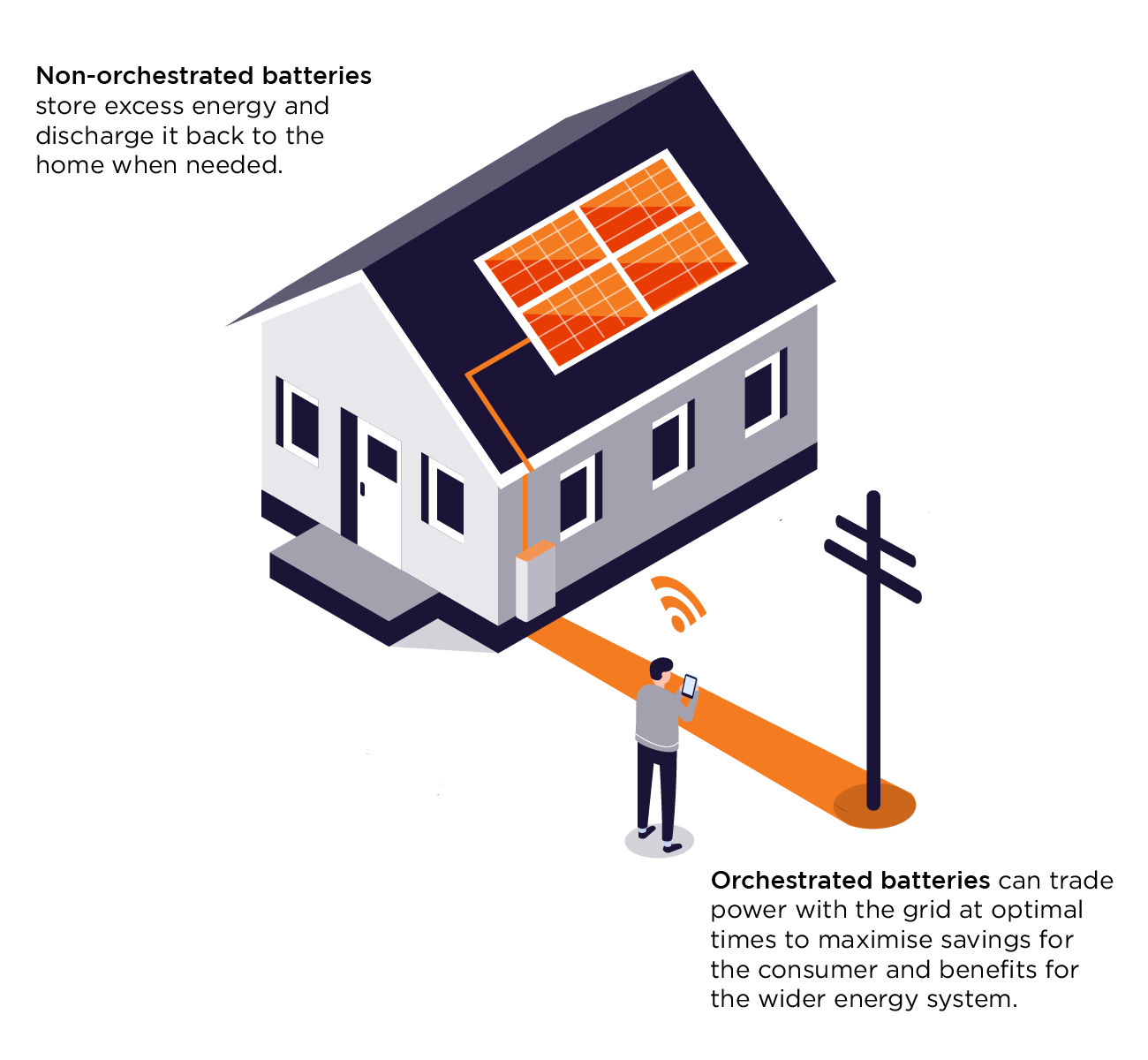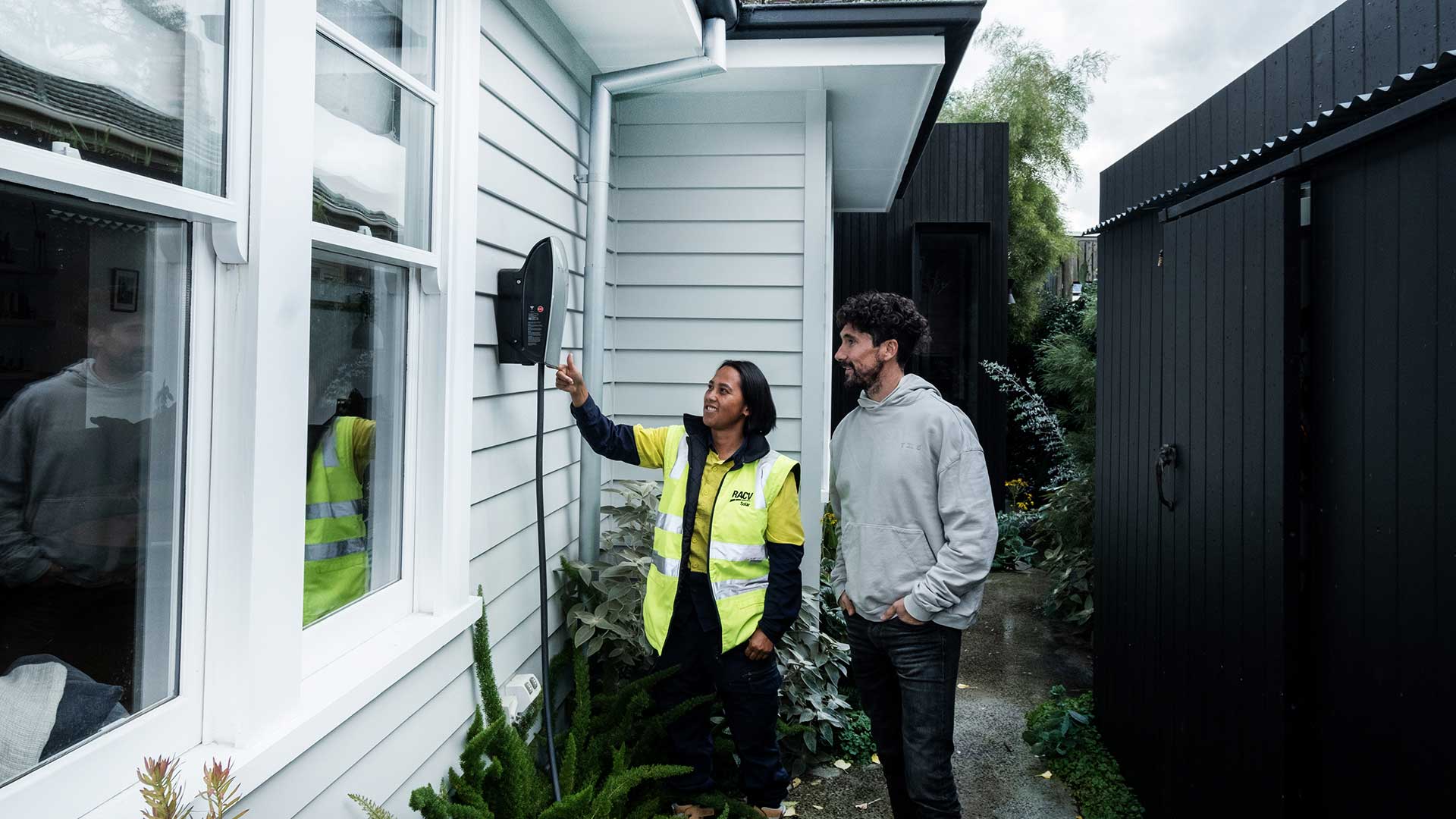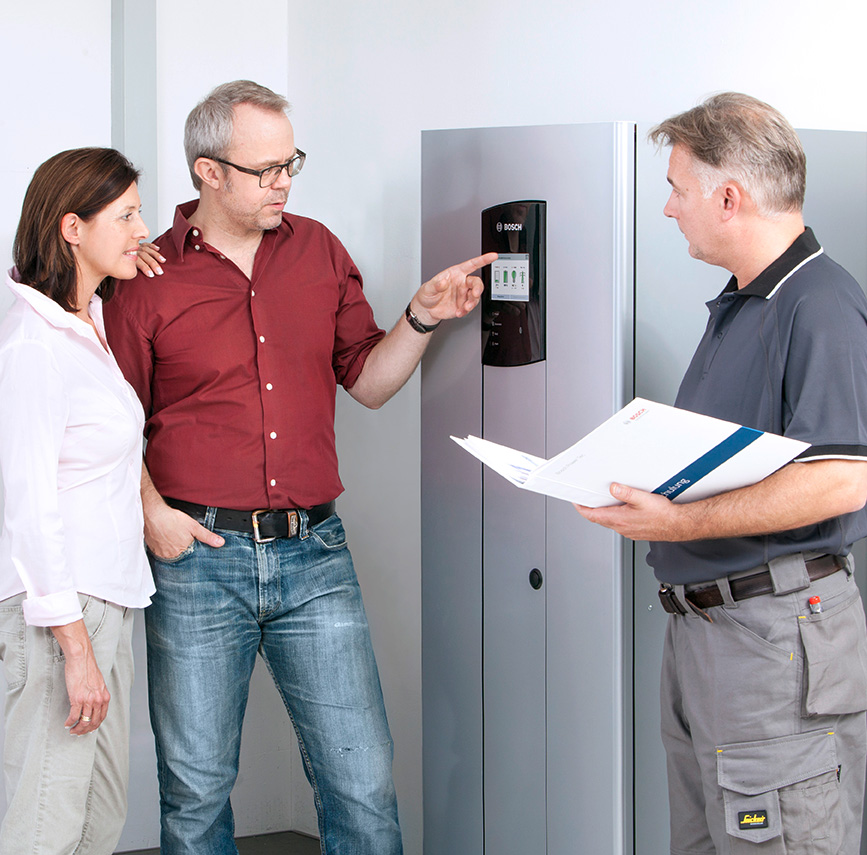Home batteries are the next step in Australia’s electrification journey. They will help Australians use more of their solar energy, provide security from blackouts and slash energy bills.
Yet home batteries can be expensive and uptake is slow. The Small-scale Renewable Energy Scheme (SRES), a federal incentive for solar systems, has helped Australia become number one in the world for rooftop solar. A national Home Battery Saver Program can do the same for batteries.
Find out more about the case for a national Home Battery Saver Program below and download our industry briefing.


Solar is already lowering energy bills for over 4 million Australian homes and businesses
The benefits of home batteries and orchestration
Savings to household energy bills
Over 3.7 million Australian homes and businesses already have rooftop solar systems, but a lot of their value is lost exporting excess energy back to the grid.
Orchestrated batteries can not only store solar energy for use at night but also trade energy with the grid to drive additional value for the consumer and the energy system.
Households could expect annual bill savings of $900-1,000 with non-orchestrated batteries and $1,150-1,500 with orchestrated batteries, as well as enjoying greater energy security and independence.
Annual energy bill savings
Benefits to the system
Orchestrated home batteries also support the wider energy system by:
- lowering peak demand and better using excess solar in the middle of the day
- adding storage capacity to help add security in blackouts and surges in demand
- helping build renewable storage as coal plants retire

Expected household bill saving with non-orchestrated battery per year
Expected household bill saving with orchestrated battery per year
Expected payback period for a non-orchestrated battery by 2030 with a battery subsidy
The case for a national Home Battery Saver Program

A national program can deliver over 400,000 additional batteries and $190m in net savings
Battery rebates work. It's important to get the settings right
Batteries are expensive and payback periods are typically long. Affluent consumers are buying them for energy security, prestige and the environment, not usually savings. In a cost-of-living crisis, support is needed to drive down the cost of batteries and catalyse widespread uptake. Without it, batteries will remain for the few not the many.
State battery schemes have shown rebates can drive uptake of batteries and orchestration services on a small scale. SRES has helped Australia to become a world-leader in rooftop solar, and it can do the same for orchestrated batteries too.
To be successful however, it will be critical to ensure there are requirements for quality battery systems, ethical sales practices and safe installations that meet standards.
Get involved as a member

